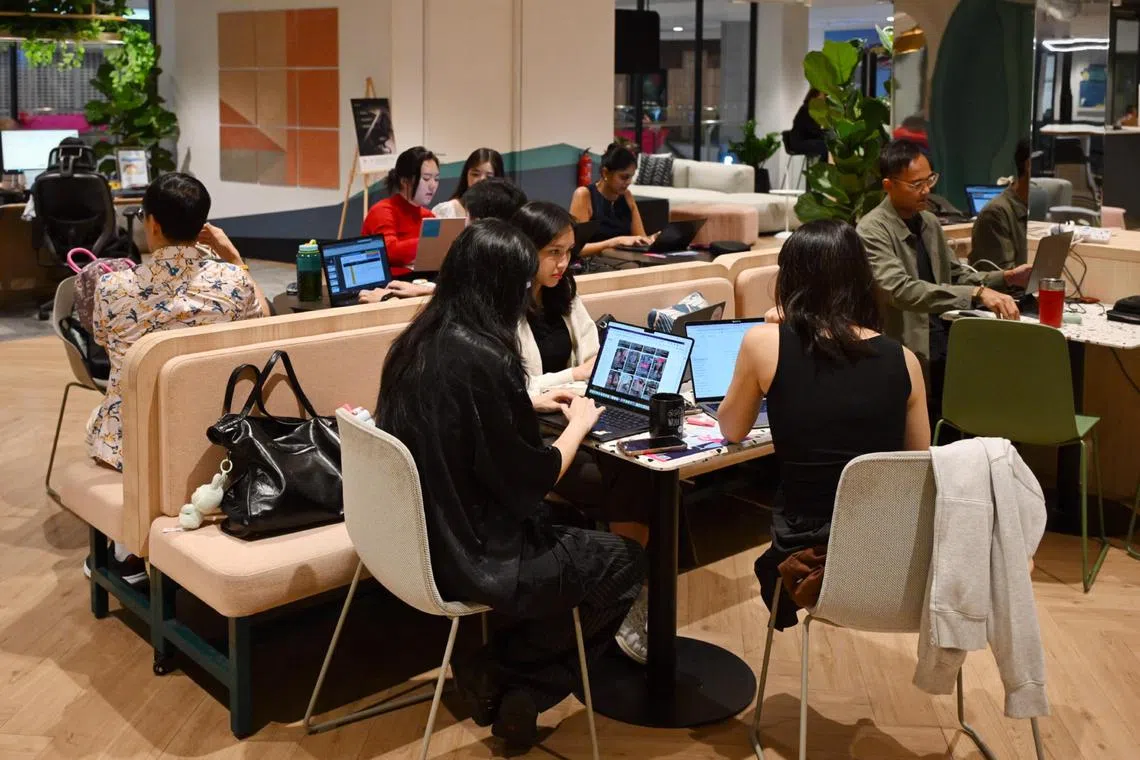For subscribers
On-the-job learning upended by AI and hybrid work
Employers will have to be more deliberate in the training they offer junior staff.
Sign up now: Get ST's newsletters delivered to your inbox

The effect has been noted across professional industries, from auditors and law firms to the big investment banks.
ST PHOTO: KUA CHEE SIONG
Mr Jamie Dimon is unequivocal about the impact of remote working on training new bankers. “It doesn’t work in our business,” the chief executive of JPMorgan Chase told Stanford’s Graduate School of Business in 2025. “Younger people (are) left behind.” He has previously spoken of the importance of “the apprenticeship model... which is almost impossible to replicate in the Zoom world”.
In many workplaces, that apprenticeship model is as simple as sitting near a more experienced colleague or joining a client meeting to watch how it is done, while also learning the ropes by taking on often more repetitive and basic tasks. But on-the-job learning is now facing the double threat of hybrid working, which means junior staff spend less time observing and listening to more senior colleagues, and generative artificial intelligence (AI), which is making obsolete many of the routine tasks that have long been building blocks of professional knowledge.


